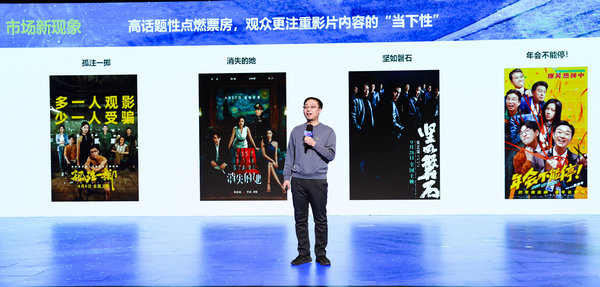Movies featuring women's strength popular in China's cinema
By Xu Fan | chinadaily.com.cn | Updated: 2024-01-19 07:24

Movies highlighting the strength of women emerged as a popular genre in China's rapidly recovering film market last year, according to Maoyan Entertainment, which operates one of the country's largest ticketing services, Maoyan.
One such example is Lost in the Stars, a suspenseful film about a young woman's quest to investigate the disappearance of her close friend during the friend's trip with her husband in Southeast Asia. The movie, starring actresses Ni Ni and Janice Man, raked in 3.5 billion yuan ($487.8 million) to soar as the second-highest-grossing film in the summer box-office season, which lasted from June 1 to Aug 31.
Besides, Last Suspect, helmed by director Zhang Yimou's daughter Zhang Mo, resonated with many female audiences for vividly depicting two mothers: a lawyer and a retired teacher. Unfolding in a complicated narrative, the lawyer desperately tries to rescue her kidnapped young daughter, only to discover that the teacher sets it as a trap to personally punish the murderer of her own adult daughter.
Feminism-themed movies have also become popular in the global cinematic landscape, exemplified by the overwhelming success of Barbie, the highest-grossing film in the United States last year.
Liu Peng, head of Maoyan Research Institute, said the box-office tally in 2023 has reached its peak in nearly four years, significantly boosting the morale of the domestic industry.
Another new trend is that Chinese audiences are more interested in movies adapted from real-life stories or dealing with highly relevant social issues. Examples of such movies include No More Bets, which is inspired by thousands of cyber-scam cases in Southeast Asian countries, and Johnny Keep Walking!, a comedy hit reflecting workplace problems in corporations.
The popularity of these blockbusters has shed light on the future direction for local creators, demonstrating that filmmakers should pay more attention to whether the characters, storylines, and values match the emotional needs of the modern audience, added Liu.
























